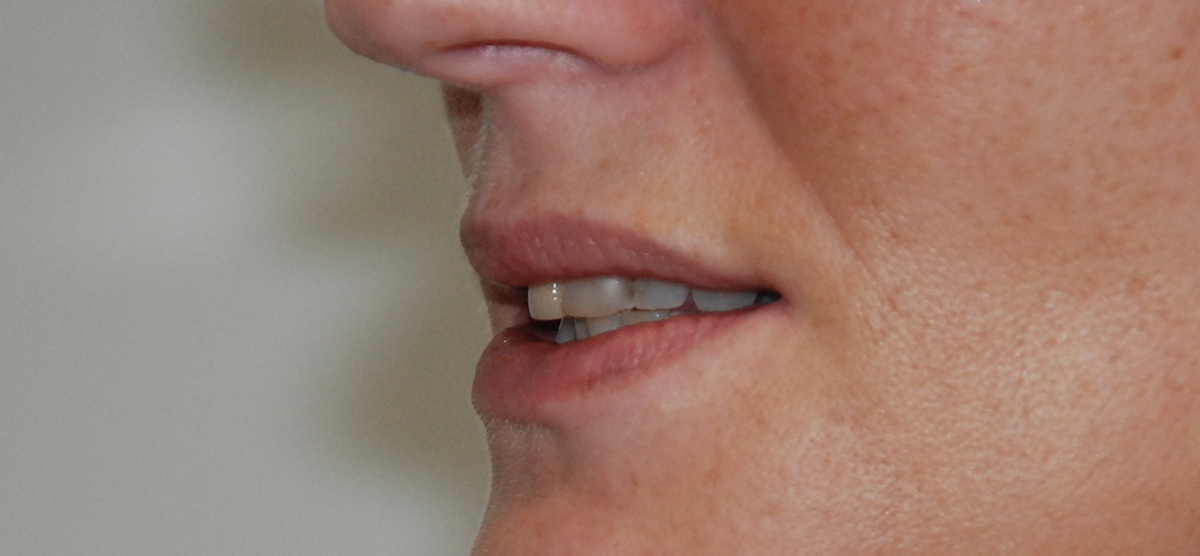Dr Chris Street
Spotting lies
People have a very low success rate at detecting lies, and training seems to make little difference, according to investigative psychologist Dr Chris Street.
THE University of Huddersfield’s Dr Chris Street is researching how people decide whether or not someone is lying to them. One source of funding for his work comes from a company that aims to stem the threat from phishing emails, and his work has recently been showcased at a major science event in London.
He gave an interactive demonstration – involving participants from the audience – that showed how difficult it is to tell when people are being untruthful, and that traditional detection methods such as looking for shifty body language are ineffective. Better strategies are needed, Dr Street argues.
He is a Senior Lecturer in Investigative Psychology at the University and Director of the Social Conflict Lab. Lie detection is his key research area and it led to an invitation to take part in the event named SpotOn London, held at the Francis Crick Institute. Titled Spotting Lies, Dr Street’s session was based on the newly-emerging Adaptive Lie Detector (ALIED) Theory.
It is well-established that people have a very low success rate at detecting lies, and training seems to make little difference.
“But we would argue that this is not necessarily the result of doing the wrong thing,” said Dr Street. “It is just that the information is not there in the environment. Liars are very good at what they do. They don’t give themselves away in any obvious fashion.”
Dr Street believes that people are not necessarily error prone and are in fact adopting sensible strategies. But they need extra information – clues and cues – if they are to improve their success rate. Given a cue like Pinocchio’s nose, people can achieve near 100 per cent accuracy in detecting lies.
“When you ask people what cues are useful for deception, they mention visual cues like eye contact, fidgeting and nervousness, but when you start noting down what they are actually doing when trying to check someone’s statement, they don’t use these cues,” said Dr Street.
Instead they seek useful pieces of information that could corroborate a story. If that information is not present, accurate detection rates plummet. Unfortunately, people are skilled liars and so there are rarely useful pieces of information available.
“If we want to increase lie detection accuracy, we need to develop methods that generate individuating cues. That may mean encouraging speakers to include details that can be verified with documents,” says Dr Street.

One strand of his work – in counteracting phishing emails for example – is to encourage a “sceptical framework”, so that people are suspicious of messages and actively look for the cues they need in order to detect the truth.
Dr Street’s output includes a blog about his demonstration work and ALIED theory. It includes a description of an experiment he worked on at University College London in which participants wore body suits, enabling their physical movements to be tracked when – as part of an invented scenario – they either lied or told the truth.
____
DR STREET was one of 186 researchers who took part in the massive replication project titled “Many Labs 2”. In 60 laboratories around the world, a series of 28 classic experiments in cognitive psychology were recreated, to test whether the original results could be replicated. The ability to replicate a finding is a core element of science. Overall, 14 of the 28 findings failed to replicate despite the large sample size.
But in the field of psychology, low rates of replication are not a cause for major alarm, said Dr Street.
“We need to bear in mind that in psychology is a very young science. We don’t know very much yet. And humans are just very unpredictable,” he said. “So that findings don’t replicate isn’t necessarily a problem in the field. This is to be expected to some degree. It’s just part of the science. By exploring the replicability of research, we are engaging in the fundamentals of science: increasing transparency and rigour.”
Congress of Psychogeography attracts 300 delegates
The congress now in its four year is organised by psychologist Dr Alex Bridger
Worried you are dating a psychopath?
Signs to look for, according to science
Judge-only rape trials to combat jury bias
Concern grows amongst the police and judiciary for the scale of unwarranted acquittals in rape cases
